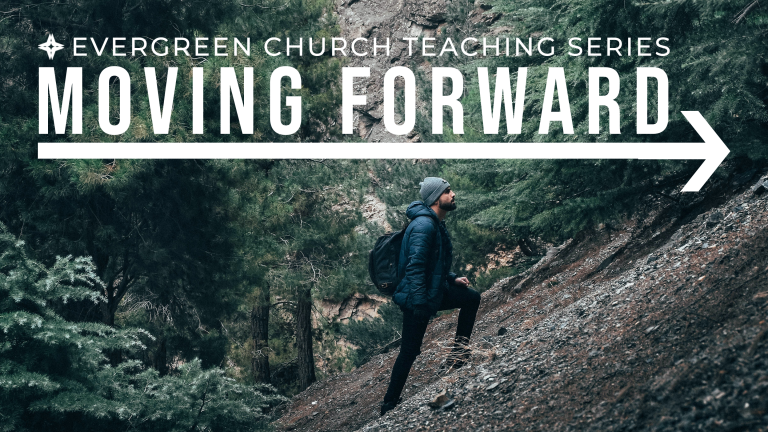
Introduction
For who knows what is good for a person in life, during the few and meaningless days they pass through like a shadow? (Ecclesiastes 6:12).
If we were living our life as God wanted it to be lived, what would it look like? Sometimes we think in terms of Bible reading, prayer, and evangelism. These are all good things, but they begin with salvation. We forget that salvation is salvation unto something. It is meant to restore us to what we were created to do. So, we need to ask, what did God create us to do? To answer that, we need to go back to Genesis 1–3. Here is a responsive reading that highlights the key elements of what God made humans to do and how it is reflected in the rest of the Scriptures.
A quote on the goal of creation from a philosopher: “And this is the task that I’ve laid down for myself, to set you free from every obstacle, compulsion, and restraint to make you free, prosperous, and happy, as one who looks to God in everything, great or small” (Epictetus, Discourses, 2.19).
Scripture Reading
Creation: By the seventh day God had finished the work he had been doing; so on the seventh day he rested from all his work. Then God blessed the seventh day and made it holy, because on it he rested from all the work of creating that he had done (Gen. 2:2–3).
Response: Ascribe to the Lord the glory due his name; worship the Lord in the splendor of his holiness (Psalm 29:2).
Creation: Then God said, “Let us make mankind in our image, in our likeness, so that they may rule over the fish in the sea and the birds in the sky, over the livestock and all the wild animals, and over all the creatures that move along the ground” (Gen. 1:26).
Response: Trust in the Lord with all your heart and lean not on your own understanding; in all your ways submit to him, and he will make your paths straight (Prov 3:5–6).
Creation: God blessed them . . . and the Lord God had planted a garden in the east, in Eden; and there he put the man he had formed. The Lord God made all kinds of trees grow out of the ground—trees that were pleasing to the eye and good for food (Gen. 1:28, 2:8–9).
Response: Hear, O Israel: The Lord our God, the Lord is one. Love the Lord your God with all your heart and with all your soul and with all your strength. These commandments that I give you today are to be on your hearts (Deuteronomy 6:4–6).
Creation: The Lord God said, “It is not good for the man to be alone. I will make a helper suitable for him.”
Response: How good and pleasant it is when God’s people live together in unity! It is like precious oil poured on the head, running down on the beard, running down on Aaron’s beard, down on the collar of his robe. It is as if the dew of Hermon were falling on Mount Zion. For there the Lord bestows his blessing, even life forevermore (Psalm 133:1–3).
Creation: God blessed them and said to them, “Be fruitful and increase in number; fill the earth and subdue it. Rule over the fish in the sea and the birds in the sky and over every living creature that moves on the ground” (Genesis 1:28).
Response: Whatever you do, work at it with all your heart, as working for the Lord, not for human masters, since you know that you will receive an inheritance from the Lord as a reward. It is the Lord Christ you are serving (Col. 3:23–24).
Creation: God saw all that he had made, and it was very good. . . . I give you every seed-bearing plant on the face of the whole earth and every tree that has fruit with seed in it. They will be yours for food (Gen. 1:31, 29).
Response: God created [these foods] to be received with thanksgiving by those who believe and who know the truth. For everything God created is good, and nothing is to be rejected if it is received with thanksgiving, because it is consecrated by the word of God and prayer (1 Tim. 4:3–5).
What has the church heard in the Word? Some Confessional References
Westminster Larger Catechism, Q/A 1 What is the chief and highest end of man? A. Man’s Chief and highest end is to glorify God, and fully to enjoy him forever.
Heidelberg Catechism, Q&A 6 – Q. Did God create people so wicked and perverse? A. No. God created them good1 and in his own image, that is, in true righteousness and holiness, so that they might truly know God their creator, love him with all their heart, and live with God in eternal happiness, to praise and glorify him.
Westminster Confession of Faith, 4.2 – After God had made all other creatures, He created man, male and female, with reasonable and immortal souls, endued with knowledge, righteousness, and true holiness, after His own image, having the law of God written in their hearts, and power to fulfill it; and yet under a possibility of transgressing, being left to the liberty of their own will, which was subject unto change. Beside this law written in their hearts, they received a command not to eat of the tree of knowledge of good and evil; which while they kept, they were happy in their communion with God, and had dominion over the creatures.
The Four Areas: Brief Summation
- We are created for communion with God
- We are created for communion with people
- We are created for consequential labor
- We are created for creational enjoyment
Some Diagnostic Questions
- How is my relationship with God? Where do I stand with Him?
- Am I taking time to develop my relationship with God? If so, how?
- What is the state of human relationships in my life?
- What is my relationship with the important people in my life like?
- Do I have friends and people in my life who encourage and challenge me?
- How am I being productive in service to God and others?
- What are my gifts and how am I using them?
- What are my opportunities to serve, and am I taking advantage of them?
- What do I enjoy doing? Am I taking time to enjoy doing good things?
- Do I take time to enjoy the good things God has given me, or do I rush through them? Do I ever go outside and just enjoy the beauty of God’s creation?

